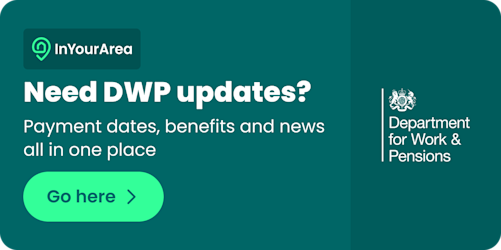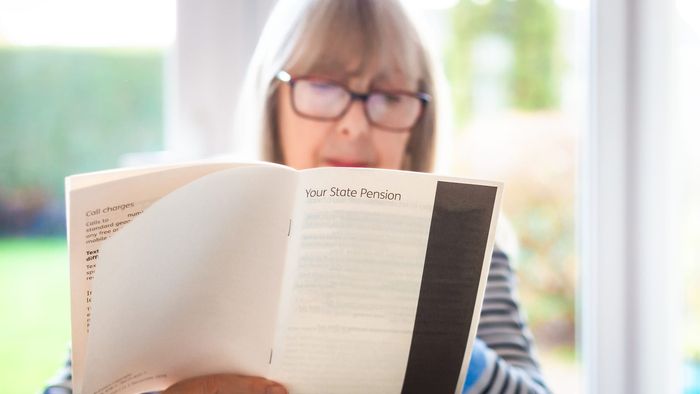PENSION BOOST: You can start an application before you reach the age requirement (Image: Getty)
The Department for Work and Pensions (DWP) has published the latest data confirming that the State Pension now supports around 13 million older people across the UK. This payment provides a regular income for those who have reached the eligible retirement age of 66 and have accumulated at least 10 years of National Insurance (NI) contributions.
However, people aged over 80 who receive little or no Basic State Pension may be entitled to an additional payment to help with daily living expenses. The ‘Over 80 Pension’ currently pays £105.70 each week to those who do not receive any Basic State Pension, or it tops up existing payments to that amount.
Low-income pensioners over 80 may also qualify for Pension Credit, which could provide over £4,300 in extra financial support over the 2025/26 financial year. It’s important to note that those who reached State Pension age on or after April 6, 2016, are not eligible for the Over 80 Pension – they instead receive the New State Pension.
MORE ON THE DWPWho can claim?
According to guidance on GOV.UK, you can claim the Over 80 Pension if all of the following apply:
You are 80 or overYou do not get Basic State Pension or your Basic State Pension is less than £105.70 a weekYou were resident in the UK for at least 10 years out of 20 (not necessarily consecutive) – this 20-year period must include the day before you turned 80 or any day afterYou were ‘ordinarily resident’ in the UK, the Isle of Man or Gibraltar on your 80th birthday, or the date you made the claim for this pension, if later
For those living in or moving to a European Economic Area (EEA) country or Switzerland, further information about pensions and benefits for UK nationals in those regions is available on GOV.UK. The Over 80 Pension is not dependent on National Insurance contributions, reports the Express.
How to claim
You can get a claim form from either:
The earliest you can apply is three months before your 80th birthday. To request a claim form, call the Pension Service on 0800 731 7898. Full details are available on GOV.UK.
Pension Credit
Many older people assume they are not eligible for Pension Credit because they have savings or own their home. However, this means-tested benefit can provide valuable support, including help with housing costs, winter heating assistance and Council Tax reductions.
Even an award of just £1 per week can unlock access to several other benefits. Pension Credit boosts weekly income to a guaranteed minimum of £227.10 for single pensioners or £346.60 for couples. It is a tax-free payment for those who have reached Pension Credit qualifying age (State Pension age) and live in Great Britain.

Fast way to check eligibility
Elderly people, or their friends and family, can quickly check eligibility using the online Pension Credit calculator on GOV.UK. Alternatively, they can call the Pension Credit helpline on 0800 99 1234 (open 8am to 6pm, Monday to Friday).
Expert advice is also available from:
Pension Credit provides additional income for pensioners on a low income and can grant access to other benefits. It raises income to a minimum of £227.10 per week for single pensioners and £346.60 for couples, with higher payments available for those with disabilities or caring responsibilities.
More help
If you qualify for Pension Credit, you can also receive additional support such as:
Housing Benefit if you rent your homeSupport for Mortgage Interest if you own your homeCouncil Tax discountFree TV licence if aged 75 or overHelp with NHS dental treatment, glasses and hospital transport costsHeating assistance via the Warm Home Discount Scheme and higher rates of Pension Age Winter Heating PaymentDiscount on Royal Mail redirection service when moving houseMixed aged couples
In May 2019, DWP rules changed regarding ‘mixed age couples’ – where one partner is above State Pension age and the other is below it. Such couples are now treated as ‘working age’ for means-tested benefits.
This means they cannot claim Pension Credit or pension-age Housing Benefit until both partners reach State Pension age. Before this rule change, a mixed age couple could claim pension-age benefits as soon as one partner reached State Pension age.
Pension Credit calculator
To use the online calculator on GOV.UK, you’ll need information about:
Earnings, benefits, and pensionsSavings and investmentsYour partner’s financial details (if applicable)
The calculator will ask questions about:
Your date of birthResidential status and location in the UKRegistered blindness statusCurrent benefits and weekly amountsCarer’s Allowance paymentsPension income (state, private, and work)Employment earningsSavings, investments, and bonds
After completing the questions, a summary screen allows you to review and edit your answers before submitting. The calculator then shows an estimate of your weekly entitlement.
There’s also an option to print off the answers you provide using the calculator tool to help you complete the application form quicker without having to look out the same details again.
You cannot use the calculator if you or your partner:
Are deferring your State PensionOwn more than one propertyAre self-employedHave housing costs that aren’t mortgage repayments or rent covered by Housing BenefitHow to make a claim
You can start your Pension Credit application up to four months before reaching State Pension age, or any time after. Claims can be backdated for three months, meaning you could receive up to three months of back payments if eligible during that period.
You will need:
National Insurance numberIncome, savings and investments informationBank account details (for phone or postal claims)
If backdating, you’ll also need financial details from the date you want your claim to start.
You can apply online if you have already claimed your State Pension, and there are no children or young people included in your claim. To check your entitlement, call the Pension Credit helpline on 0800 99 1234 or use the GOV.UK Pension Credit calculator to find out how much you could receive.
READ NEXT

